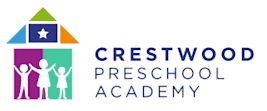Most people assume that middle and high school ages are the hardest to parent. But if this is your guess, then you would be wrong!
According to a survey conducted by OnePoll and sponsored by Mixbook, the majority of parents agree that age eight is the hardest year to parent.
This might be hard for parents of all ages to grapple with (except the parents of eight-year-olds!), so keep reading to learn why!
Why Is Age Eight the Hardest Year to Parent?
Many childhood developments happen during the eighth year. For instance, eight-year-olds consider themselves to be “big kids.” They are growing in their independence during their school days and homework, usually play at least one sport, and generally have a strong friend group and established interests.
Children’s personalities are exploding at eight years old. They begin to feel autonomous, their attitudes are beginning to be influenced by their peers, and they develop their individual likes and dislikes.
Not to mention, children are getting phones and social media accounts at younger and younger ages. These days, it’s not uncommon for eight-year-olds to have social media accounts or messaging apps. Unfortunately, phones and social media can drastically alter a child’s brain and can lead to premature anxiety and depression.
Additionally, children’s bodies begin to prep the hormones needed for puberty beginning at eight years old.
How to Parent a Challenging Age
Parenting struggles happen at every age. Just when your child has outgrown one thing, a new one pops up. This is just the nature of parenting! Here are a few tips to help you gain perspective during a parenting difficulty:
Listen More, Talk Less
Above all else, strive to keep communication open with your child. This starts earlier than parents realize, even as young as the toddler years. Most of the time, children don’t want your advice, they just want someone to listen to them. So turn off the tech, make eye contact, and engage them in conversation!
Stay Calm and Compassionate
Your child is human and will make plenty of mistakes. But guess what–we all have! Have a poker face when your child tells of their mishaps and social faux pas. Criticizing not only damages the relationship with your child but also your child’s self-esteem. Instead, a minimal response (emphasizing your listening) will help your child feel secure in sharing their mistakes and embarrassing moments.
Remember How it Feels to Be Their Age
Adults tend to forget what was important to them as a kid. Even though something may not seem like a big deal to you now (like losing a sports game), remember that it felt like a big deal when you were their age! Take some time to reflect on your interests, fears, and joys at your child’s present age. This can give you compassion and insight into how to relate to your child.
Stick With a Structure
Children feel secure with a structure. While most older children are in a school with an established routine, you can continue this security by enrolling your child in after-school care at Crestwood Preschool Academy instead of having a child stay at home by themselves or with a babysitter.

Crestwood Preschool Academy is proud to offer an outstanding educational and fun curriculum that prepares your child for kindergarten per state academic standards.
Contact Crestwood Preschool Academy today if you’re looking to give your child a head start in school!
